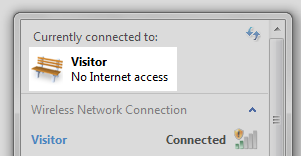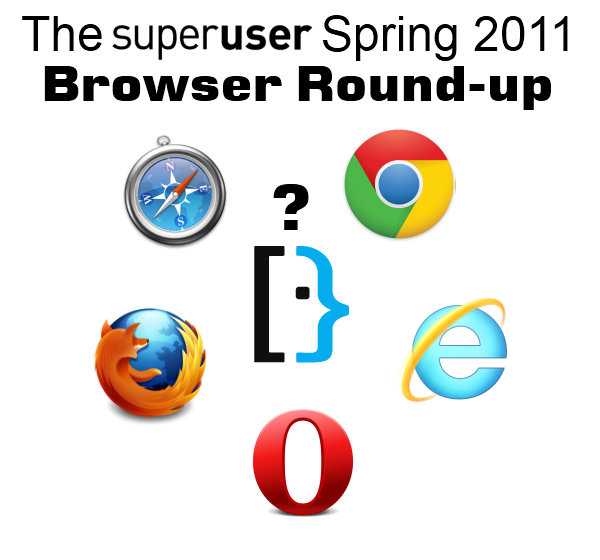Author Archive
Computers and College Part II: Saving Money
Computers and College Part I: How do I choose?
It’s that time of year: school starts soon for many college students in the US and elsewhere, and many are looking for the perfect laptop to take with them. From typing papers to entertainment, a computer is practically mandatory at most universities these days.
Choosing the right computer – especially one which will hopefully last you through four years – is a difficult process. Take it from personal experience though that it is achievable: I did it myself, and so can you. Here are some tips from a college student, computer nerd, and Super User on how to choose the right college laptop for you. This is the first part in a series of articles about computers and college. Even if you aren’t a Super User yourself, this information will hopefully be helpful in making a decision.
QotW: Does running Commands in Verbose Mode slow them down?
This week’s Question of the Week comes from MaxMaxie, and is about command line usage in Linux:
Does running commands verbosely make them slower?
I’ve found myself using the-vflag for lots of applications less and less (especially for trivial stuff liketarandcp). However, when I did and I was, say, unzipping a large file, it would take longer than when I didn’t use the-vflag. I assume this is because the terminal has to process the text and I’m filling up whatever buffer it might have. But my question is, does this make the application actually run slower or does it complete in the same amount of time and what I’m seeing is the terminal trying to catch up?
According to Matt Jenkins, it does indeed. His explanation of why is an interesting read, but the question remains: exactly how much does it slow things down? I decided to find out – read on to see just how much of a difference verbose flags can make.
Best of both Worlds Part II: Installing the Optical Bay HDD Caddy
It’s been a while since I wrote about my optical bay HDD caddy experiment, but the results are finally in. I’ve been running my laptop for over a month now with a Kingston V100 SSDnow in the primary storage bay and the original hard drive in a NewmodeUS optical bay caddy, and have been quite pleased with the results. My computer boots up quickly, applications launch instantly, and there’s plenty of space to store big files for when I need them. There are a few downsides though, which I’ll go into more detail about shortly. Is it worth your while to make this upgrade? Read on to find out!
QotW: If a password is compromised, are any similar ones?
This Question of the Week raises some interesting security implications. With many high-profile sites compromised recently, it’s worth taking a moment to consider the security of your passwords. Michael McGowan asked:
If a password is compromised, is a “similar” password also compromised?
Suppose a user uses a secure password at site A and a different but similar secure password at site B. Maybe something likemySecure12#PasswordAon site A andmySecure12#PasswordBon site B (feel free to use a different definition of “similarity” if it makes sense). Suppose then that the password for site A is somehow compromised…maybe a malicious employee of site A or a security leak. Does this mean that site B’s password has effectively been compromised as well, or is there no such thing as “password similarity” in this context? Does it make any difference whether the compromise on site A was a plain-text leak or a hashed version?
Windows 7 Network Awareness: How Windows knows it has an internet connection
Have you ever been connecting to a new wireless network and seen the following pop-up balloon?

 Whenever I connect to a WiFi network which requires in-browser authentication, such as university networks and hotel access points, Windows somehow magically knows. Windows also knows when your internet connection isn’t working, and can differentiate between having local LAN access, no network access at all, or full internet access. But how?
Whenever I connect to a WiFi network which requires in-browser authentication, such as university networks and hotel access points, Windows somehow magically knows. Windows also knows when your internet connection isn’t working, and can differentiate between having local LAN access, no network access at all, or full internet access. But how?
This week’s question of the week is one I myself asked about this very topic. I guessed that there must be some online Microsoft site that Windows is checking to determine the state of the connection, but I wanted proof, not just speculation.
Best of both worlds: putting an SSD in your optical bay
Note: Part II, installing and configuring the optical bay caddy, is now posted!
Have you ever wished you could put an SSD in your laptop, but realized that you have far too much data to fit on an affordable SSD? By putting a hard drive caddy in your optical bay, you can add a second hard drive to your computer, allowing you to install your operating system, applications, and other frequently accessed files on an SSD, while storing all of your large files on a regular hard drive.
Our reviews of the Kingston v100 SSD have shown that adding a solid state drive to your system can make it significantly faster, from decimating the boot times to speeding up application launch and data access. One of the downsides of solid-state technology however is that it is still very expensive per-GB compared to traditional hard drives. On computers with two hard drive bays, you can just install your operating system on an SSD and keep everything else on a regular HDD. Laptops rarely have a second HDD bay though. Fortunately, with a optical-bay caddy, you can add a second drive to your computer easily. With flash drives, online streaming video, and downloadable software installs becoming more popular, many users find themselves using the CD/DVD drive less and less, so replacing it with an SSD can be a good investment. Furthermore, in the rare cases that you do need access to optical media, you can always plug in your old DVD drive externally with a special cable.
This first post in the series will give you a sense for how this technology works, and how to figure out what hardware you need to do this. Kingston and NewmodeUS have donated hardware for me to test this out myself, so the next post in this series will chronicle my experience with performing this upgrade.
Spring 2011 Browser Roundup
The past month has seen new versions of each of the top three browsers released. Internet Explorer 9, Firefox 4, and Chrome 10 have all just come out, each touting faster javascript performance, improved HTML5 support, better standards compliance, and more customization tools and features. The world wide web is a very different place now than it was even a couple of years ago, and browsers have progressed significantly in the past few years. In this review, we will take a closer look at these three browsers and others, to see what the ultimate Super User should use to browse the internet.
Contents

